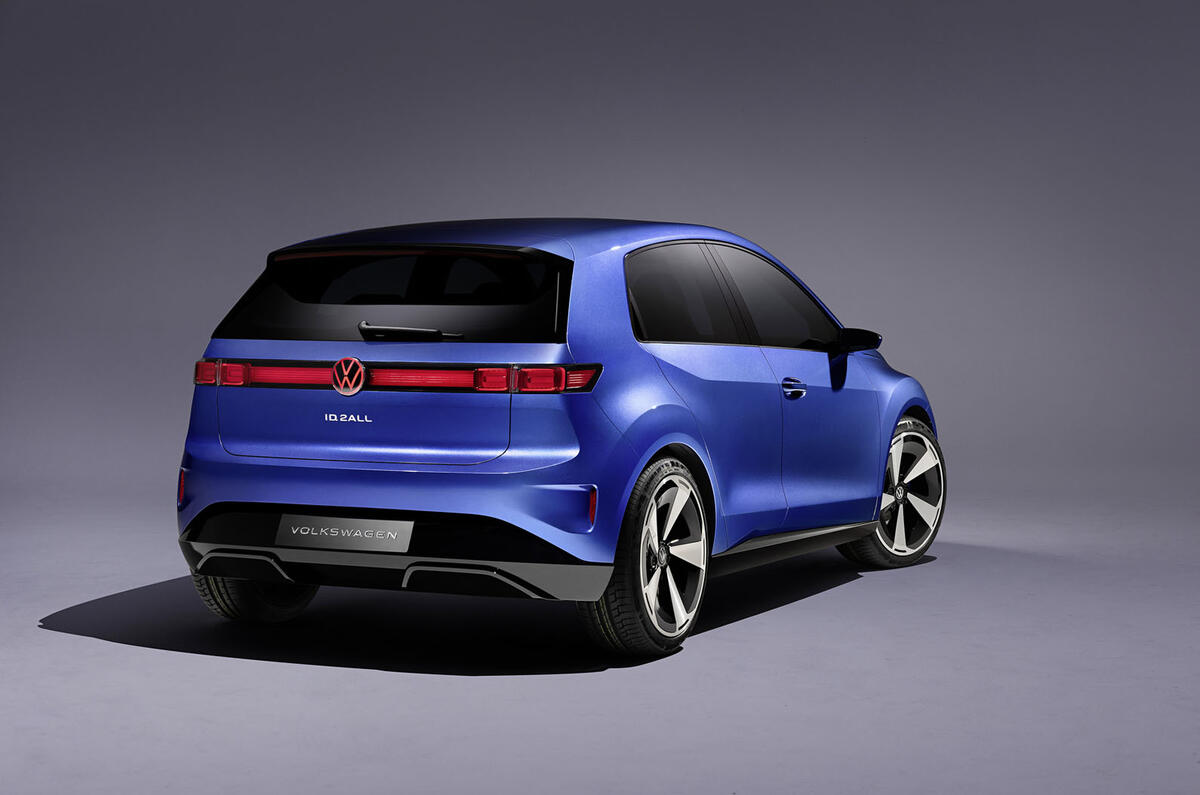Volkswagen is looking to cut its development times of new cars from 54 months to 36 months in order to keep up with the quicker pace of development of Chinese rivals.
Speaking at the Munich motor show, Volkswagen technical boss Kai Grunitz said the upcoming Volkswagen ID 2 was one of three pilot models working to the shorter 36-month development cycle. The first design sketches of that car were done in December last year and VW wants to have it on the road by the end of 2025.
“You see with Chinese competitors that it’s doable,” said Grunitz about the shorter development times. “We have concrete ideas about how to do this.”
Grunitz said the shorter development times will require VW to build new simulation tools and ways of validating development work. He added that the development cycle can be shorted by removing various on-road validations of simulation work, reducing the number of test cycles and cutting the likes of cold-weather testing from two or three winters down to one.
The shorter development cycles bring “risk”, said Grunitz. “The risk is that you don’t know where you’ll end up when you start the development process. In Germany, we have clear lines about what we want, especially at Volkswagen, and we don’t want to go into a development process with any risks.
“But in any enterprise, there are risks. The competitors in China start [development] and are agile. If something comes up, they find a solution. That’s what we have to do in Germany. It’s a different approach. But it’s possible, really possible.”
Grunitz highlighted BYD as a Chinese competitor he respects the most in building quality cars in shorter timeframes. “They have a real platform strategy, low costs, a really good battery and are all over the world building up some good sites.”
VW will also work more closely with suppliers to integrate their technology and ideas into its models rather than “wanting to develop everything on our own”. Grunitz said: “Now we’re developing interfaces with ideas from our suppliers.”
Grunitz also acknowledged there are further risks around ensuring the quality of the cars is consistent and at a standard expected by VW customers, particularly after well-publicised problems with the eighth-generation Volkswagen Golf and Volkswagen ID 3, which were built using the longer, 54-month development time.
“That’s exactly the challenge. We won’t bring any cars to the road like you’ve seen with the Golf 8 or ID 3 [which had software problems]. The question is how we reduce test cycles and stay within the quality.”









Join the debate
Add your comment
It's doable because electric cars are much simpler. Betcha they wouldn't try this with an ICE. Also most cars are doing away with physical buttons. Cars are becoming much easier to design and build. It's also a problem for VW group and German/ Japanese car making who have built reputations on reliability because with simplicity comes greater reliability. Fundementally it's a good time to be a Chinese start up. Terrible time to be an establish large car maker. Even the likes of KIA will struggle
So it takes them however long to develop their current rubbish cars, and they're going to reduce development times? What could go wrong?